The Most Miserable Cities in The United States (As Ranked By Residents)
If you are looking for a new place to stay, you might want to look through this list before making a decision about where you want to settle down. The following cities are ranked as the most horrible places to live in the United States by their own residents. This list was made possible by data from nationwide censuses.
The overall rankings have been determined by factoring in the level of violent crime, the length of travel time to work, the household’s average income, and a number of other key points. So, continue reading in order to save yourself from relocating to one of the most miserable cities in the United States!
Plainfield, New Jersey
Plainfield, New Jersey, which has a population of approximately 50,000 people, comes in at number 50 on the ranking of the most depressing cities in the United States. Though 70% of the population is employed, one-fifth of them live below the poverty line, and one-third do not have medical insurance.
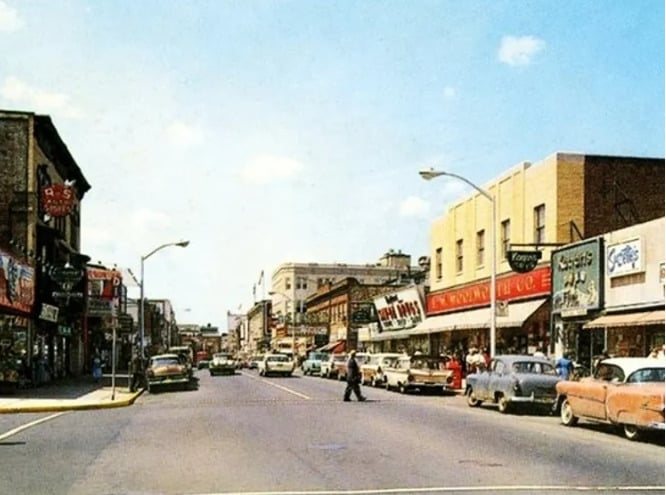
Cinema Treasures
In addition, Though there has been a significant drop in the number of people killed by violent crime over the past few years, the city is still somewhat dangerous. Therefore, it is best to look at alternative cities if you’re looking for a new home in New Jersey.
Miami Gardens, Florida
If Florida didn’t feature on this list of the most miserable places to live in the United States, we couldn’t possibly call it comprehensive, could we? In 2014, Miami Gardens received the distinction of being named the “stop and frisk capital of America.”
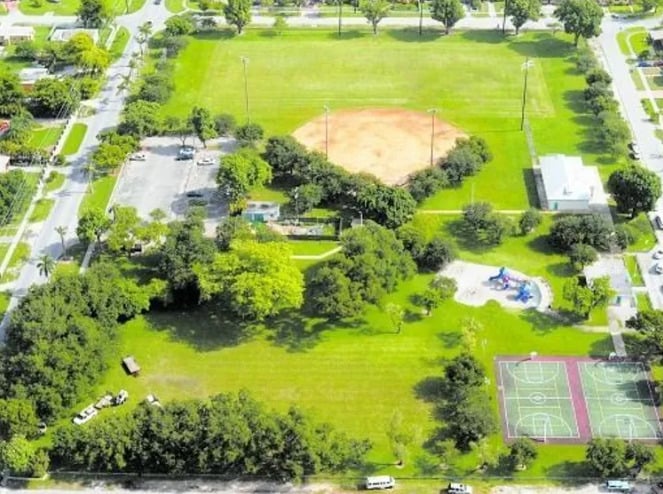
Community Newspapers
As if that were not bad enough, there is also a 25% surcharge added to the price of the water, making it significantly more expensive than usual. Who would want to live in a place where basic expenses are so high?
Youngstown, Ohio
The city of Youngstown was once the third-largest producer of steel in the United States. Yet, in 1977, it began a process of deindustrialization, and ever since then, it has been steadily declining. This has had a significant impact on the city’s livability rating.

Britannica
Between 2010 and 2018, the city experienced a decrease in population of about 3%. At least some of this decline is likely attributable to the city’s high level of poverty and horrendous air pollution. For these reasons, it is understandable for people to move out of Youngstown in search of greener pastures.
North Miami Beach, Florida
Even when there isn’t any precipitation in the forecast, North Miami Beach frequently experiences flooding. Flooding is a very serious problem that can cause endless issues for the residents of the city. It significantly affects the livelihood of many, which may well have led to a higher level of unemployment and poverty in North Miami Beach.
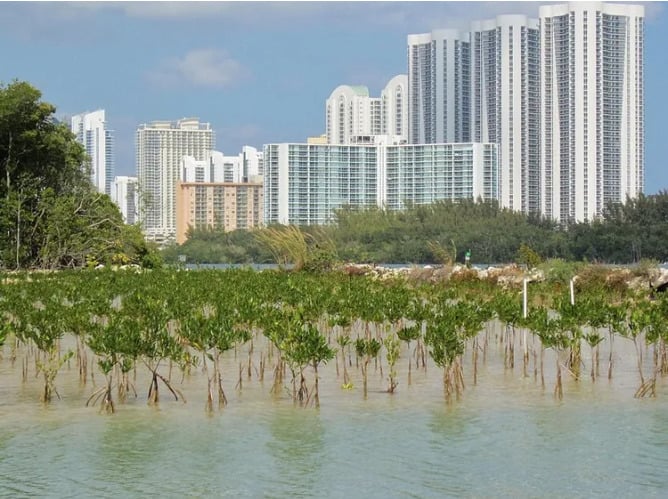
Wikipedia
It is possible that the rising sea levels will soon cause septic tanks to stop functioning properly, which would lead to wastewater being released into people’s backyards. Needless to say, this is an appalling prospect.
Huntington, West Virginia
West Virginia isn’t exactly known for being the most beautiful state in the country, but it seems that Huntington is exceptionally awful. It has earned the dubious title of being the unhealthiest city in all of the United States.
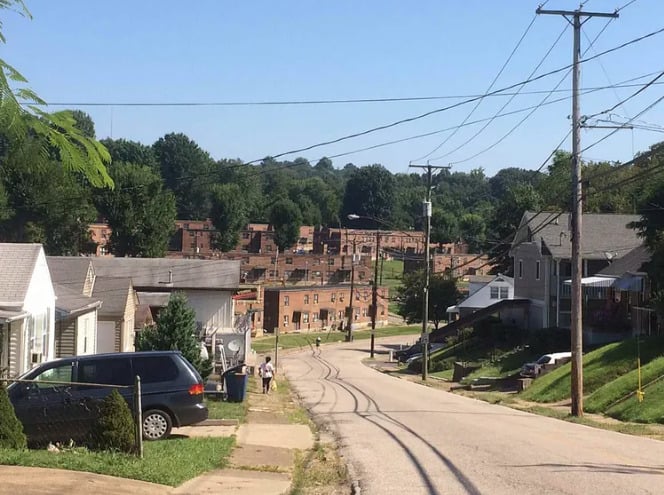
Denver Post
When you factor in the devastating impact of the drug epidemic, you have an explanation for why the state’s population declined by more than 6% between 2010 and 2018. More than 42,000 Americans passed away from overdoses in 2016 alone.
Charleston, West Virginia
People in Charleston, West Virginia, have a median household income of $47,000 per year, which is not a terribly low amount of money; however, they are still quite unhappy with the environments in which they work.
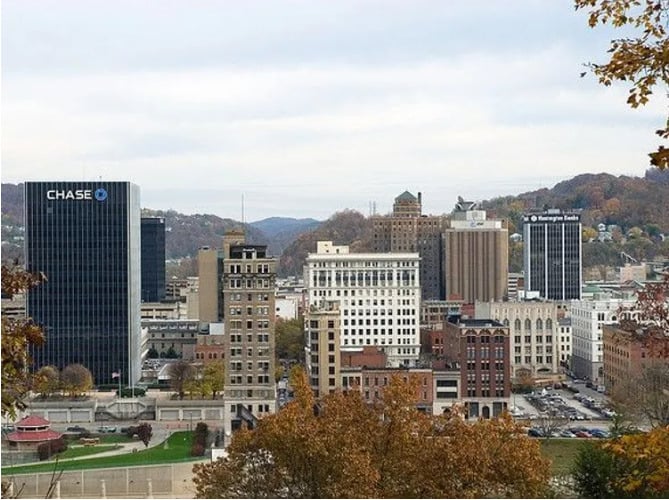
The city has the country’s second-highest rate of depression, with 27% of the population reporting that they have been diagnosed with the condition by a qualified medical professional. In terms of residents’ physical health, Charleston also has a poor ranking, as a significant number of the city’s inhabitants suffer from diabetes and hypertension.
Huntsville, Texas
The pictured Huntsville penitentiary is where all lethal injections and final sentences in the state of Texas are carried out, which makes the Department of Criminal Justice the biggest employer in the city. Of course, that is a disturbing fact, whether or not you are a local.
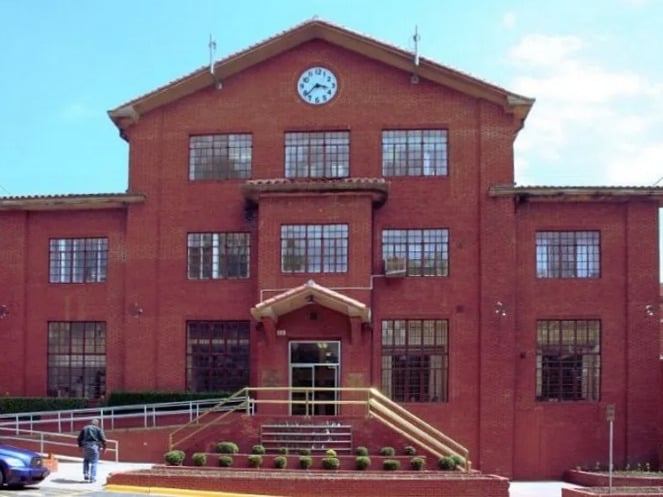
Wikipedia
On its own, that fact would probably be enough to dissuade most people from making Huntsville their permanent home. However, to make matters even more unfortunate, the rate of unemployment is still very high, and 35% of the population lives in poverty.
Paterson, New Jersey
Over the course of its history, the city of Paterson has endured more than its fair share of misfortune. Since its heyday as a prosperous silk town in the 1800s, it has experienced a steady decline in population and economic vitality.
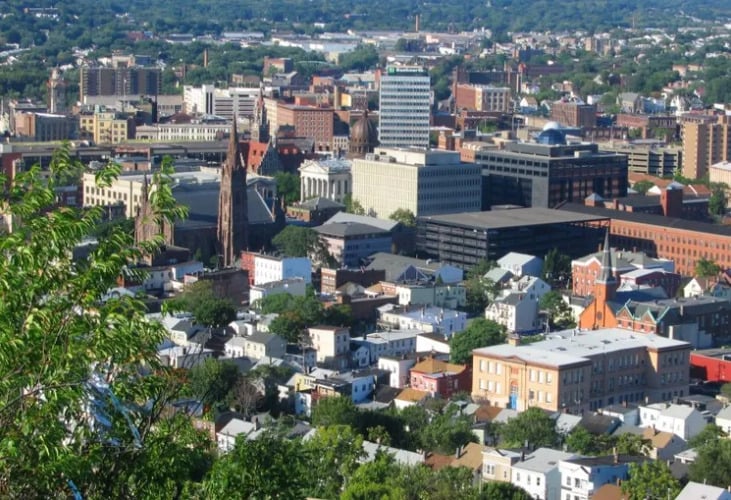
Wikipedia
In the aftermath of Hurricane Irene in 2011, the city was ravaged by flooding, and at one point, 1,250 homes were no longer habitable. Only 57% of Paterson’s 145,000 residents are employed, and nearly 30% of the city’s population lives below the poverty line.
Cicero, Illinois
Cicero was regarded as Al Capone’s “private playground” in the 1920s. The city still maintains some of the notoriety it once had due to the fact that it currently deals with a significant amount of gang-related crime.
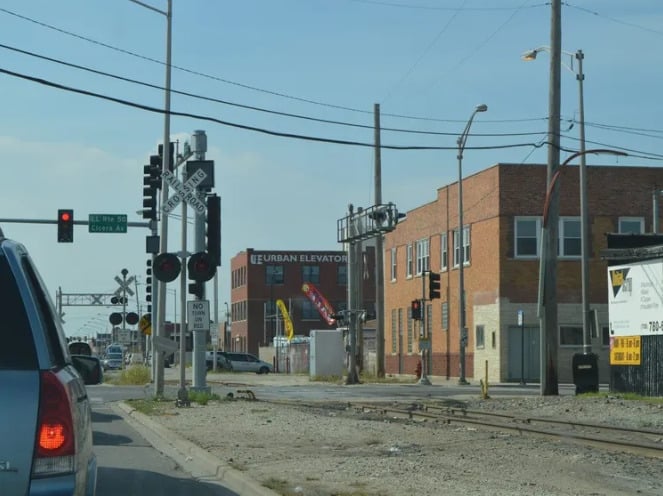
Industrial Scenery
In addition to its long history of violence, the typical travel time to work is hideously lengthy in Cicero, and the poverty rate is relatively high. It’s possible that the general sense of danger coupled with the difficulty of commuting to work may have resulted in rising unemployment rates in the city.
Shreveport-Bossier City, Louisiana
In addition to having a relatively weak economy, the metropolitan area of Shreveport-Bossier City is also one of the unhealthiest places in the country. Fewer than half of the residents surveyed said that they regularly engaged in exercise lasting at least half an hour.
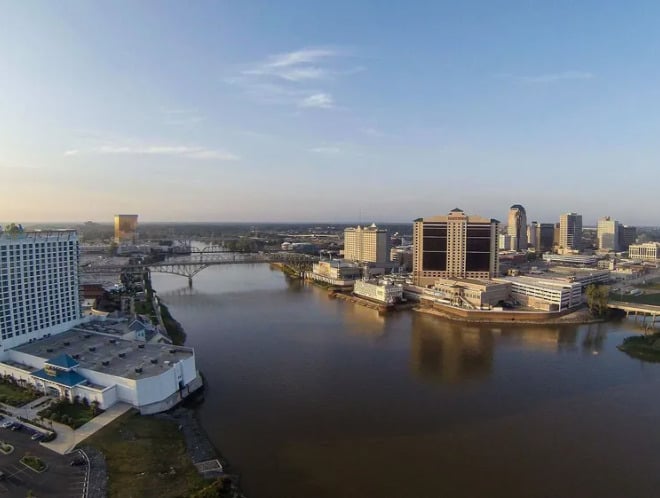
Shreveport-Bossier Convention and Tourist Bureau
Around 14.8% of the population lives below the poverty line. This is reflected in the average annual household income for the city, which sits at around $36,000. Keep in mind that this is an average, meaning many people are scraping by on far less.
Columbus, Georgia
It is reported that more than 25% of the residents of Columbus have been diagnosed with depression by a healthcare professional. This makes the citizens of Columbus among the most depressed people in the entire country.
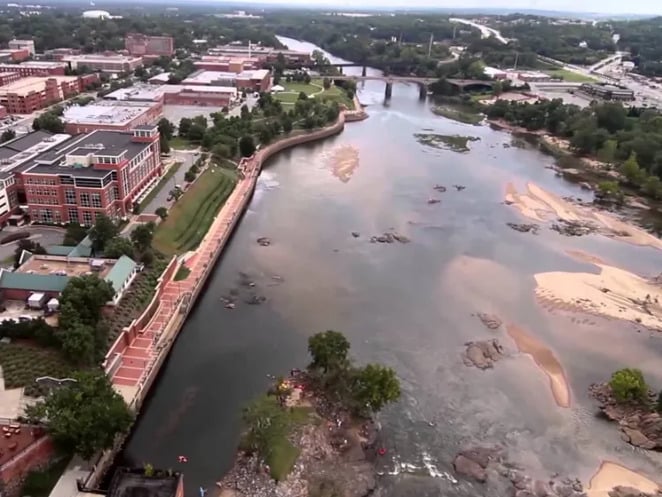
Georgia Globe Design News
When you consider the fact that 23% of the people who live there dislike the city, and many of them do not have access to essentials such as food and medication, it is not hard to understand why this is the case. So, if you’re looking for somewhere to settle down, it might be worth looking elsewhere.
Hialeah, Florida
The overwhelming majority of Hialeah’s population is composed of Latinos, making it one of the cities in the United States with the least amount of racial and ethnic diversity. Those who lead active lifestyles are advised to avoid moving there as it has been ranked as the most unsuitable location in the country for outdoor exercise.
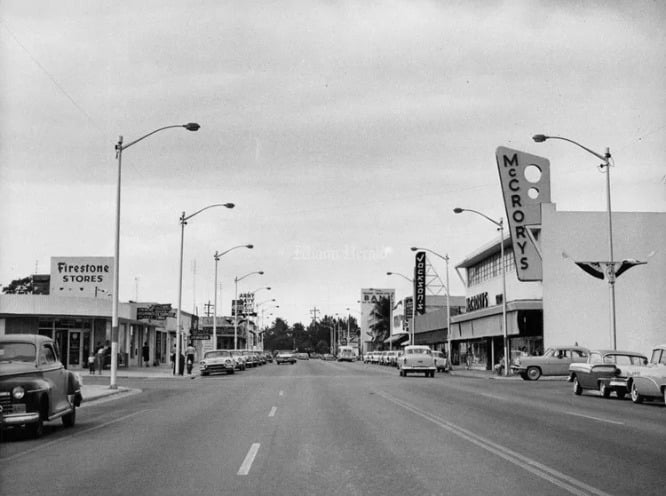
Flashback Miami
Around 56% of the population of Hialeah are employed, while 26% live below the poverty line, and more than 30% do not have medical insurance.
Reading, Pennsylvania
Reading is just one of several cities around the country that has seen its economy suffer significantly due to the closure or downsizing of manufacturing facilities. For locals, this has resulted in widespread job losses.

Around 36% of the city’s 88,495 citizens live below the poverty line, and 44% of those residents receive food stamps. However, 62% of the city’s residents are employed. According to a list published by The New York Times in 2011, Reading was the poorest city in the United States.
Makaha, Hawaii
Regrettably, the idyllic images of Hawaii circulating online do not do the state justice in its entirety. For example, consider the town of Makaha, which has a population of just over 8,800 people but a poverty rate of 30.1%.
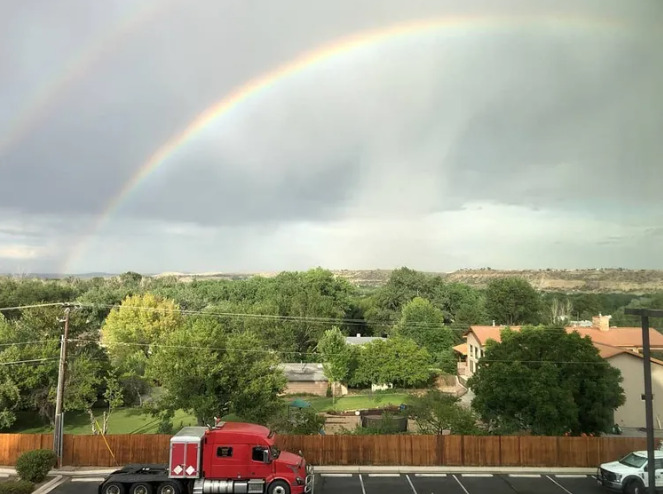
In a cruel twist of fate, it has a high cost of living. At $407,200, the average house price places the city in the top 25% of all home values in the country. A little less than 10% of the town’s population has been unemployed throughout the past five years.
Saginaw, Michigan
The high prevalence of crime in Saginaw has led to the city’s residents giving it the nickname “Sag-nasty,” despite the fact that the city’s overall crime rate has decreased over the past several years.
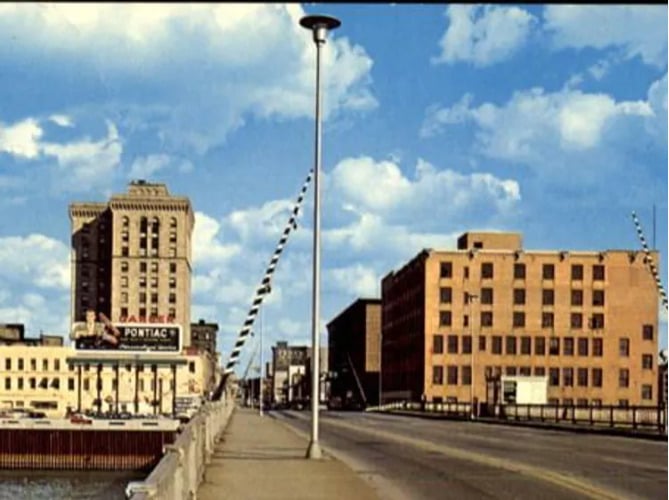
The city was formerly home to 25,000 manufacturing jobs thanks to General Motors. However, as is the case with many of the other locations on this list, those jobs have since disappeared. At the moment, there are approximately 34% of individuals living in poverty, while 55% of the population is employed.
Mobile, Alabama
There are a few notable aspects of Mobile, Alabama. For instance, roughly a quarter of its citizens are smokers. In addition, it has one of the highest rates in the country for the diagnosis of cancer, and it’s among the top 10% in the nation for the number of individuals who suffer from high blood pressure. These are just a few of the health issues that plague its population.

Public Domain
In addition to the adverse effects on their health, many residents of Mobile despise their jobs, and the area has one of the highest percentages of the population who report having experienced anger during the previous twenty-four hours.
Brownsville, Texas
Because of Brownsville’s location on the international boundary between the United States and Mexico, immigration problems and incidents of violent crime against visitors on both sides of the border are sadly common in the area.
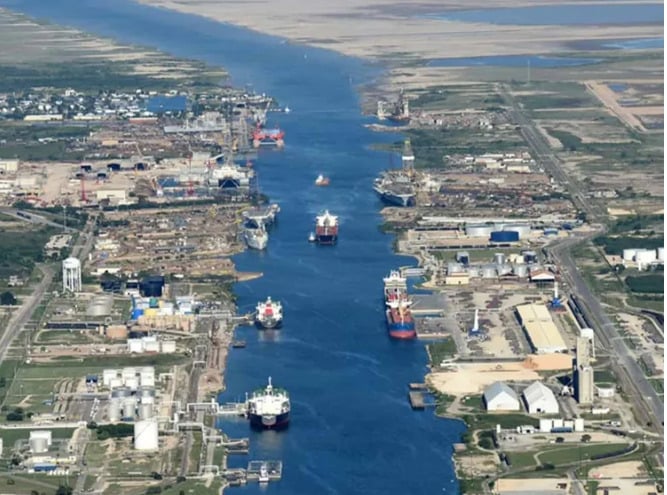
Freight Waves
Consequently, it is challenging for landowners to sell their homes, and the region is widely recognized as one of the most heavily patrolled in the country. In addition, one-third of residents in Brownsville are living below the poverty line, and 35% of the population does not have health insurance.
Redding, California
There are over 90,000 people living in the Redding area, and 6.8% of them, which is the greatest percentage seen in any metropolitan area, identify themselves as “suffering.” In addition, both the city’s unemployment rate and its rate of violent crime are at alarmingly high levels.
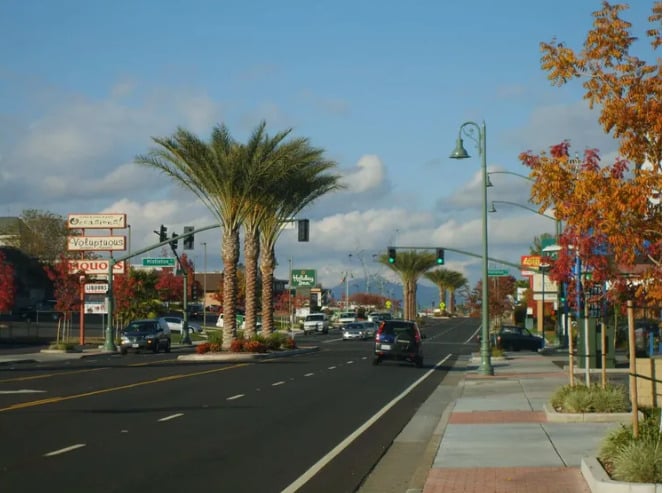
Only 87% of people who participated in the survey said they had been treated with respect in the previous 24 hours. When one considers all of these factors, it is not surprising that the rate of depression in Redding is among the highest in the entire country.
Huntington Park, California
Although there is a sufficient amount of affordable homes in Huntington Park, residents nevertheless have a difficult time buying or selling properties because of the city’s high poverty rate. People don’t tend to want to live in an area where poverty is widespread.
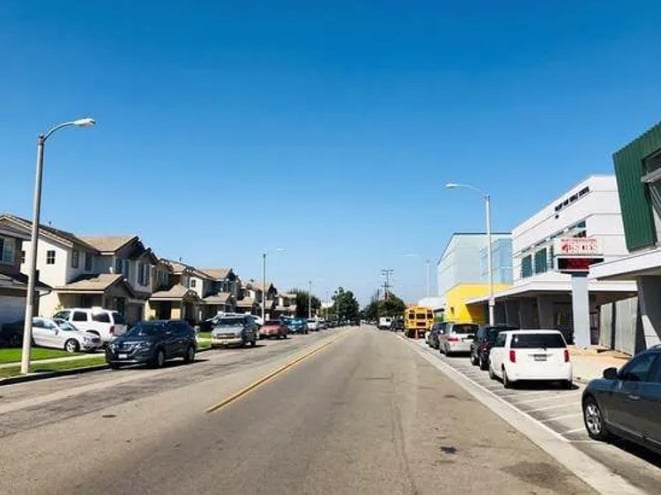
Redfin
In addition to this, city residents report long commute times, with a median of 31 minutes. This may be one of the factors contributing to unemployment in the city. Many Huntington Park residents also live there without authorization.
Camden, New Jersey
Camden, New Jersey, could be the ideal location for you if you are the type of person who thrives on the excitement of potential threats. This is due to the shockingly high rate of violent crime in Camden, which is far higher than the average for the country as a whole.
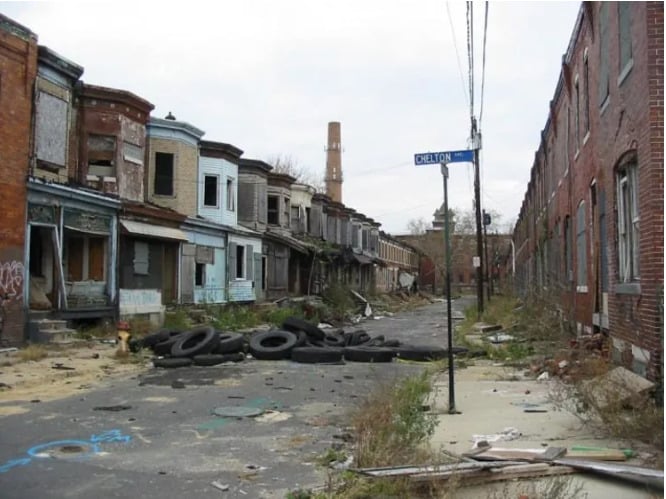
The city is also among the top candidates for the title of one of the most dangerous cities in the United States. Sadly, the average household income in Camden is the lowest of all the cities included in this list.
Flint, Michigan
In recent years, Flint has been in the national spotlight on multiple occasions due to its lead-contaminated water system – a problem that has not yet been rectified. As a result, in just five short years, the city has experienced a catastrophic decline in real estate values as well as a loss of more than 5% of its population.
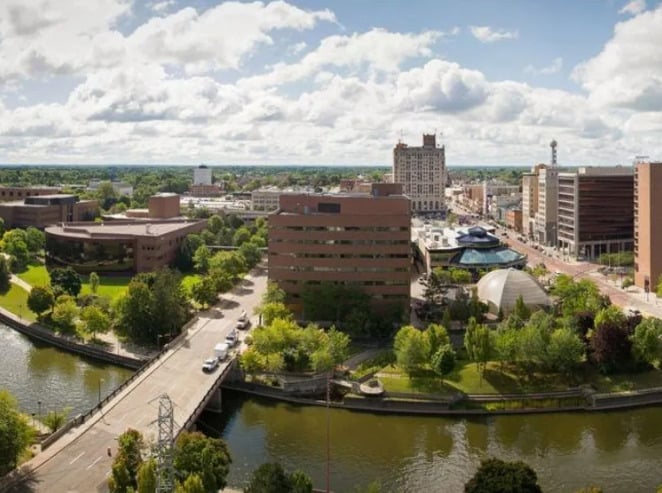
Flint Firebirds
In addition, the annual income of half of all households is less than $26,000, and more than 40% of people live in households with incomes that are below the poverty threshold.
Pine Bluff, Arkansas
With a population of 42,000, Pine Bluff experienced the most significant population decline on this list between 2010 and 2018, losing about 14% of its total population. Only 52% of locals are employed, while 30% of people are considered to be living below the poverty line.
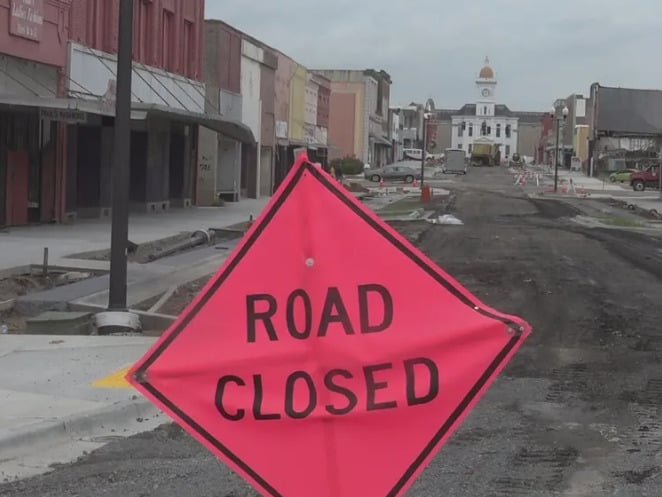
THV 11
People moved out of the state as a result of the nearly 3,000 manufacturing jobs that were lost between 2016 and 2017. In 2019, things became even worse as the Arkansas River flooded the city. This was a significant setback for the already embattled city.
Newark, New Jersey
Another place that is plagued by high rates of violent crime, poverty, and lengthy commuting times is Newark City in New Jersey. It takes an average of 35 minutes to get to and from work every day. To make a bad situation even worse, there have also been issues with lead contamination in the city’s water system, similar to Flint.
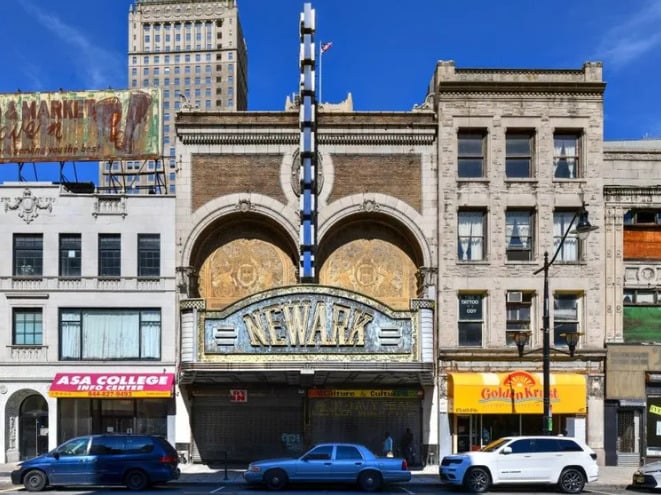
Juvenile Justice Information Exchange
Newark has a population of 282,000 people, of which 62% are employed while 28% live below the poverty line. Race relations have also been a problem in the city, and some readers may remember that there were violent riots in 1967. The city has seen an uptick in violent crimes since 2013.
Danville, Virginia
The city of Danville, Virginia, has a population of around 40,000 people. Between 2010 and 2018, the city had an astounding 5.5% population decline. Around 55% of the population is currently employed, while 21% live below the poverty line in this city.
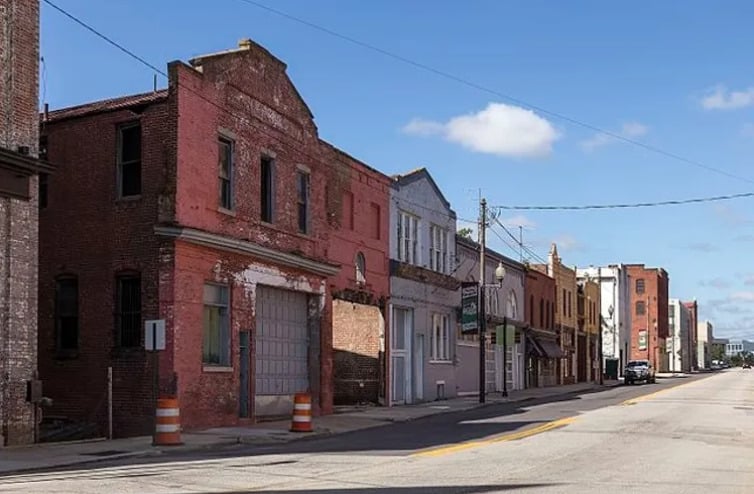
Wikimedia Commons
Danville, Virginia, was formerly one of the wealthiest communities in the Piedmont region, but its tobacco and textile industries shut down, and the city began to struggle. Thankfully, Danville appears to be making a comeback since the downtown area is currently being renovated for new businesses.
Hemet, California
Hemet, located in California, has a population of 85,000 individuals. The city has battled quite a bit since the global financial crisis of 2008. Nevertheless, the population has grown by an astounding 8.5% between the years 2010 and 2018. Sadly, poverty affects 23% of the population in Hemet, and the prevalence of violent crime is relatively high.
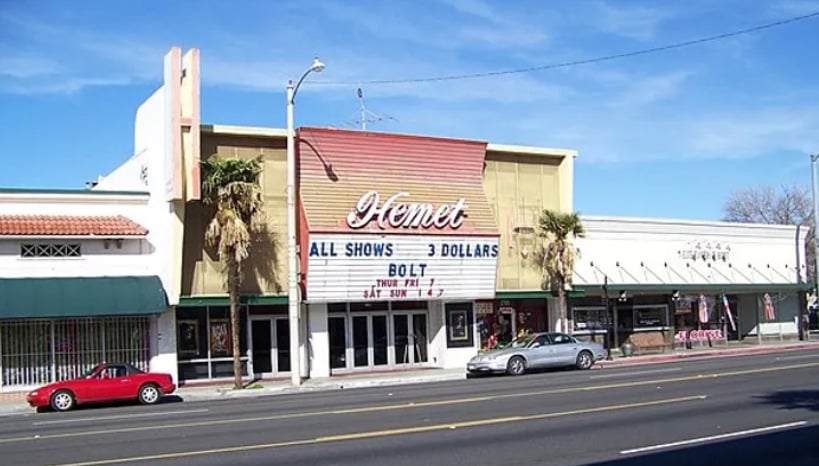
Wikimedia Commons
The number of aggravated assaults reported to the police in 2016 was 398, which set a new high for the past 100 years. In addition, in 2016, there were reports of more than 170 robberies and the theft of more than 600 vehicles.
San Bernardino, California
A little more than 60 miles east of Los Angeles, the city of San Bernardino has a population of 222,000 people, 57% of whom are employed and 30% of whom are living below the poverty line. A steel mill and an air force installation were shut down, reducing employment in the community.
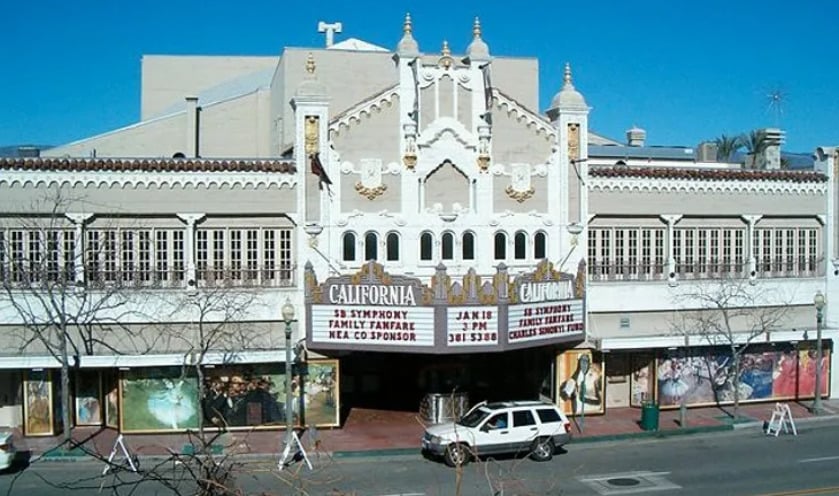
Wikimedia Commons
A number of unfavorable characteristics mar the city. However, San Bernardino is home to the McDonald’s Museum (the location of the first McDonald’s restaurant in the world), California State University, San Bernardino, and the biggest outdoor amphitheater in the United States.
Compton, California
There are 96,000 people living in Compton, which is located just south of the downtown area of Los Angeles. A whopping 40% of the population is unemployed, and 32% live below the poverty line.
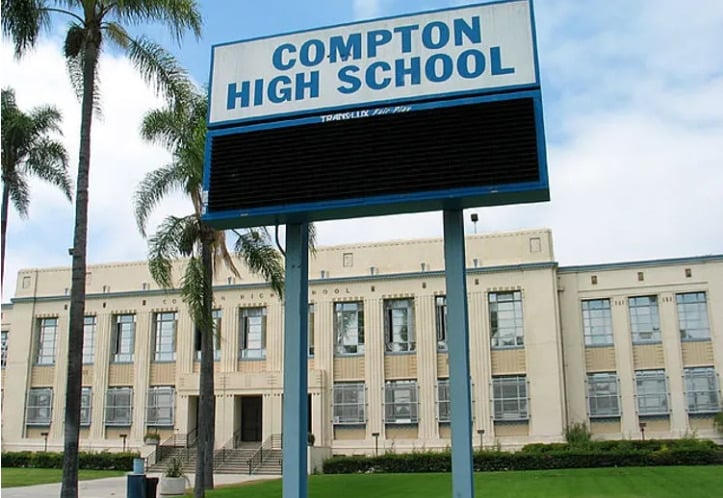
Wikimedia Commons
Though poverty and crime rates are still very much a problem in Compton, the city as a whole is significantly safer now than it was even a few decades ago. The city is also responsible for producing its fair share of successful personalities, such as a number of professional athletes and rappers like Coolio and Dr. Dre.
Harlingen, Texas
Since the census taken in the year 2000, the population of Harlingen has increased by 12.5%, reaching a total of 65,000. While 30% of the population is considered poor, 56% of inhabitants are currently employed.
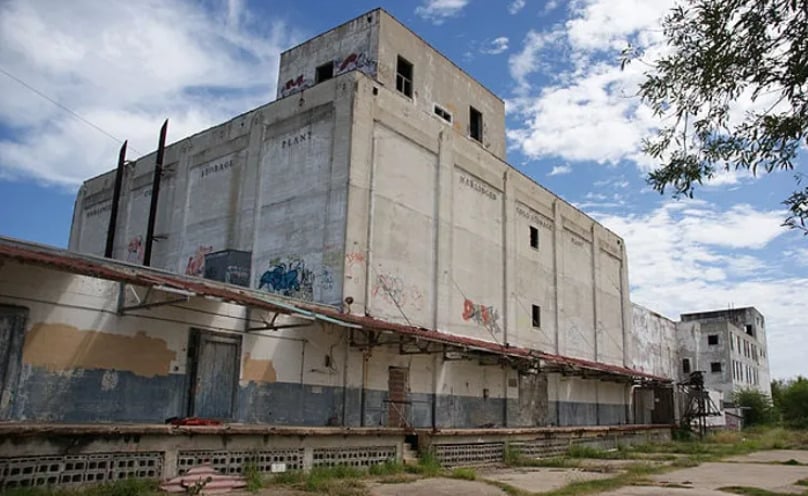
Wikimedia Commons
The nomadic “Winter Texans,” or retirees from Midwestern states who remain in Texas during the chilly winter months, are the primary contributors to the city’s economy. Harlingen has an average household income that is somewhat higher than $30,000 per year. In addition to its other problems, the city also experiences flooding.
Hallandale Beach, Florida
There are 37,000 individuals in Hallandale Beach, Florida, 60% of whom are employed, and 20% of whom are living in poverty. Almost a third of the population does not have any type of health coverage.
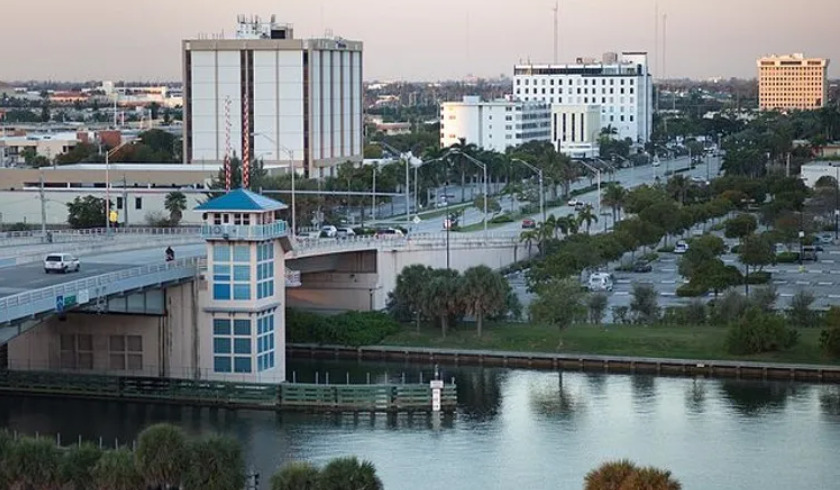
Wikimedia Commons
Despite the negative press, Hallandale Beach has one of the city’s fastest-growing demographics since so many retirees have chosen to call it home. In addition, the city’s financial center is rather extensive, and there are a lot of restaurants in the area. Because of this, the site has been dubbed “Hound-Ale Beach.”
Anderson, Indiana
According to the census, there were fewer than 56,000 people residing in Anderson, Indiana, in 2010 compared to 70,000 people in 1970. There was a time when General Motors was Anderson’s largest employer, and the city was home to 24 of the automaker’s factories; however, when those factories were closed, 23,000 people lost their jobs.
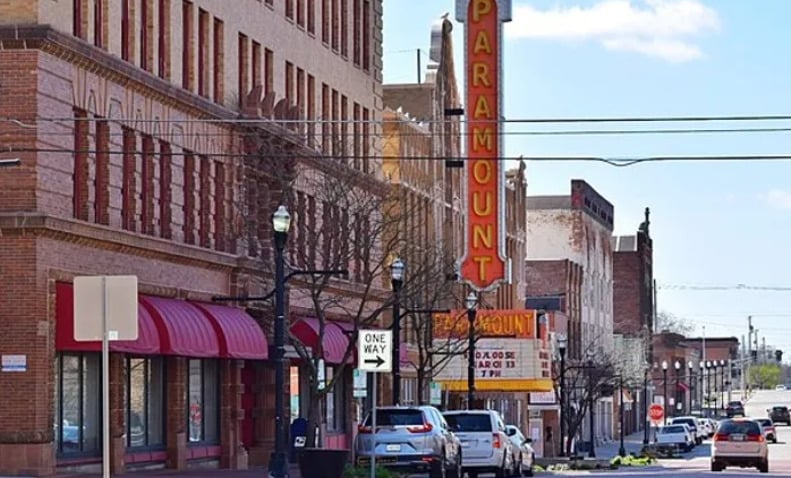
Wikimedia Commons
These days, 56% of inhabitants have jobs, yet 25% are considered to be living below the poverty line. To make conditions even worse, the city has also been afflicted with blight, a disease that attacks plant life.
Sumter, South Carolina
According to the 2010 census, there were approximately 40,000 people residing in Sumter, South Carolina. There are 17.8% of people living in poverty in Sumter, while 56% of the population is employed, and the average income for a household is $31,590.
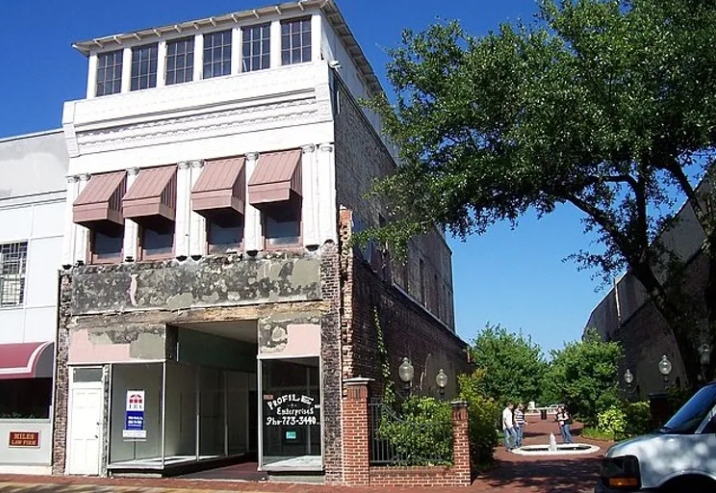
Wikimedia Commons
The city has a significant crime problem, with a total of 426 violent crimes reported in 2018. In the same year, a total of 1,740 reports of crimes against property were made. Fortunately, the overall rate of homicide was fairly low, with only three cases reported during that year.
Farmington, New Mexico
It is estimated that there has been a population loss of approximately 3.3% in the city of Farmington, New Mexico, since the year 2019. The city currently has a population of 44,372 residents. Around 60% of the city’s residents are currently participating in the labor force.
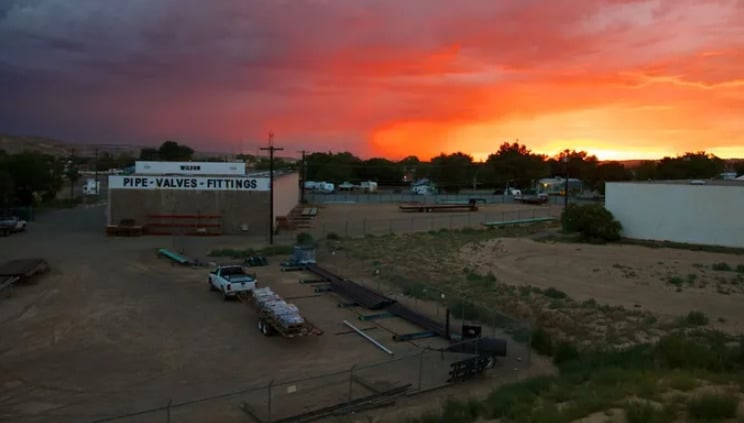
Wikimedia Commons
However, 17.4% of people in the city suffer from poverty, and 13.2% of individuals under the age of 65 do not have medical insurance. In addition, because of its climate, which can be described as semi-arid, it is impossible to cultivate any kind of plant life in Farmington. This makes its name rather ironic!
Detroit, Michigan
There are several factors that contribute to Detroit’s unfavorable reputation. First, it is not too difficult to understand why 6% of the city’s population moved away between 2010 and 2018. The city has been in a downward spiral ever since its thriving manufacturing sector started to collapse.
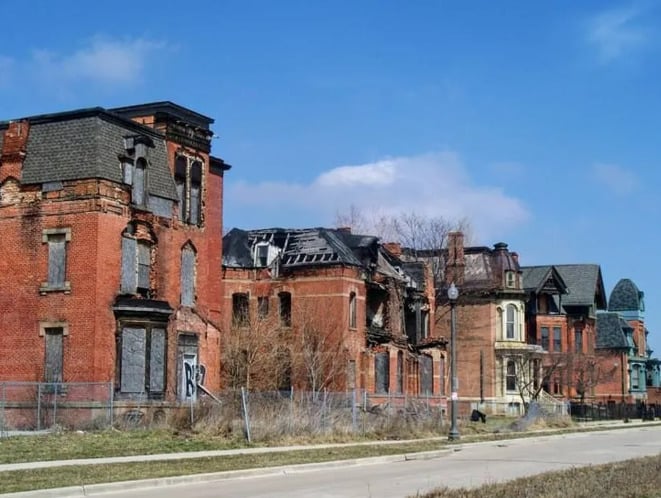
In addition to having a reputation as one of the most dangerous cities in the United States, there are currently 43,000 homes that have been abandoned. Although that is unfortunate, we can’t blame people for leaving, especially given the state of decline the city has fallen into.
Port Arthur, Texas
Throughout the years, Port Arthur has been known as a city cursed with bad luck. First, it is encircled by oil refineries, making the scenery significantly less desirable than it could be. Second, there is a significant amount of poverty.
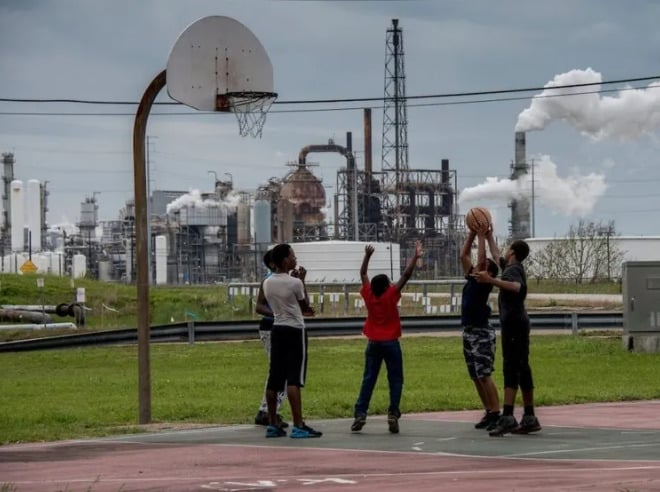
Source: Environmental Integrity
Thirdly, and perhaps most significantly, it has been struck by several hurricanes, the most recent was Hurricane Harvey in 2017, which caused more than one billion dollars in damage. As a result, many residents have fled the city, and officials fear they will lose their federal subsidies if the population continues to decline.
Gary, Indiana
Topping our list of the most miserable places to live in the United States is Gary, Indiana. Gary, which was once considered the murder capital of the United States, saw its population decrease by 6% between 2010 and 2018. A little more than half of the population is employed, but over 30% of them are still poor.
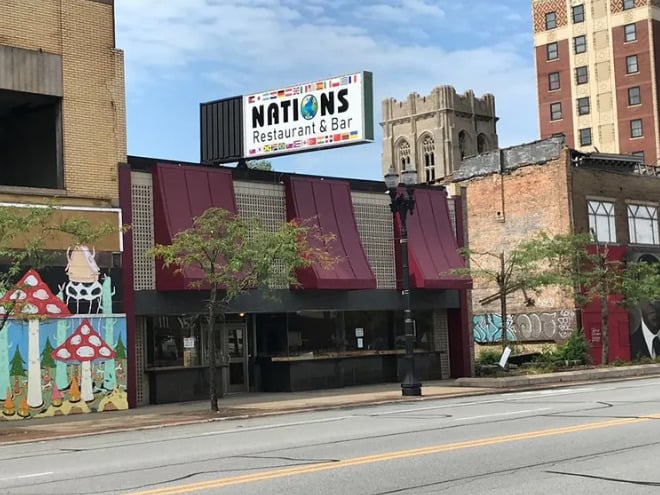
Because there are so many vacant homes in the area, local authorities have devised a plan to sell each for just one dollar to rehabilitate the neighborhood. So, in a nutshell, if you want to find happiness in your life, you shouldn’t move to Gary. However, if you’d like to buy a house for a dollar, it may be the city for you!
Lancaster, California
Lancaster is a desert town in California that has just under 160,000 people. Of that population, 51% work, and 23% live in poverty.
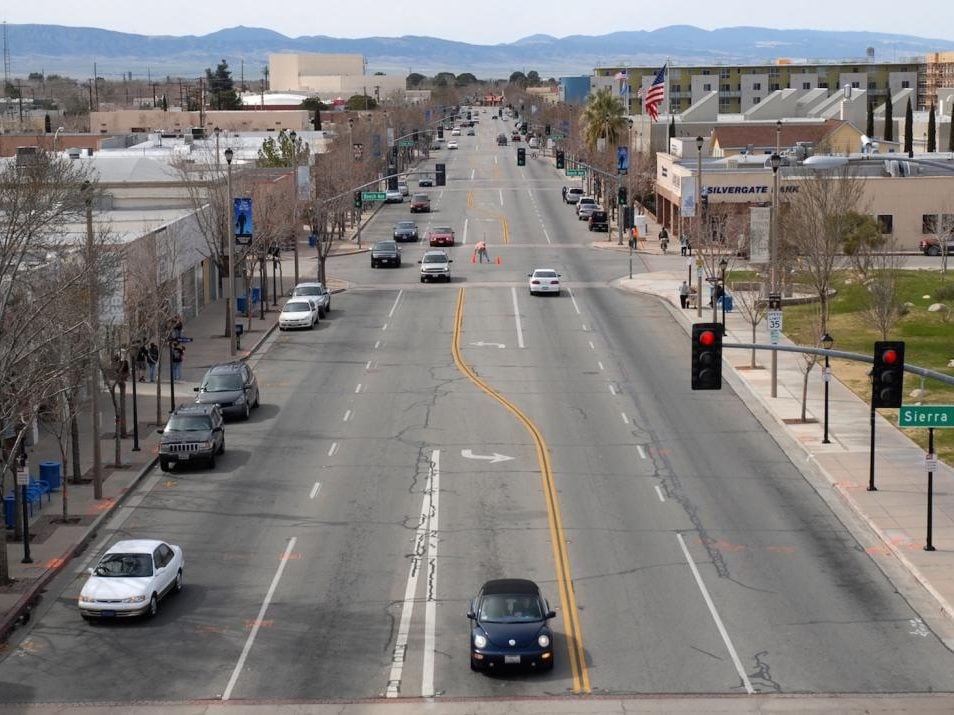
sprawlkills.org
On top of these issues, the town has also dealt with issues in crime, ranging from drug abuse and neo-Nazis. The city’s council plans on making positive changes and investments.
St. Louis, Missouri
This town has struggled with crime and violence for a while now. This likely is adding to the around 5% of population that it lost in the years 2010-2018. The amount of death in the city is incredibly high.
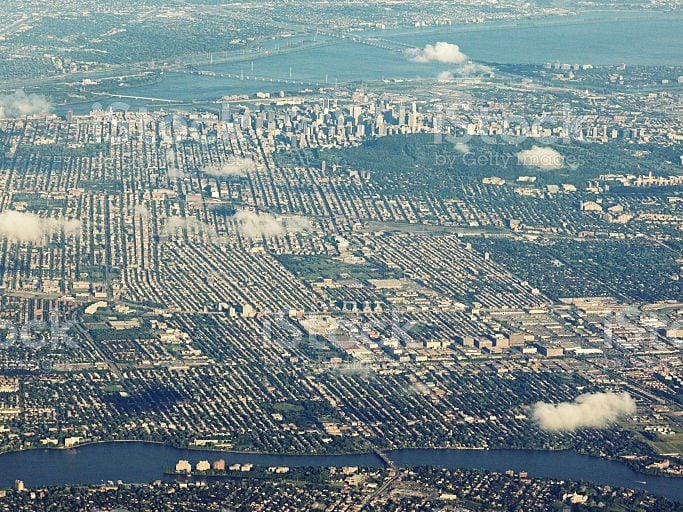
The city has decently relaxed gun laws and people are allowed to carry loaded guns with no permit. There are about 303,000 people who live there, with one quarter living in poverty.
Pasadena, Texas
With a mostly working-class population of 153,000 people, one fifth of those people live in poverty. The population lives next to petrochemical plants and has had known issues with race, as it was the former home and headquarters to the United State’s leading terrorist group, the KKK.
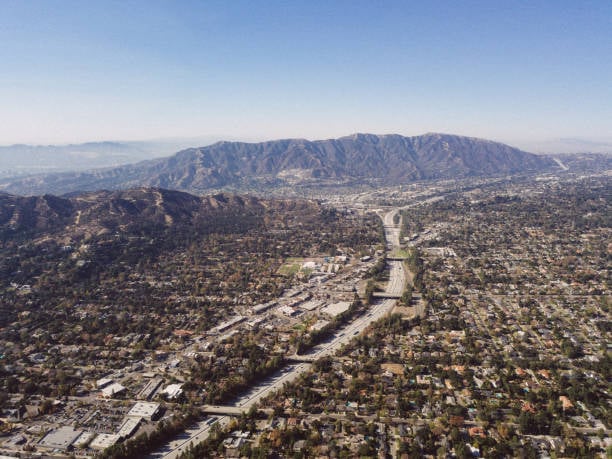
The city has a lot of division and a lot of poverty and that is why it is an excellent candidate for our lost of miserable cities.
West New York, New Jersey
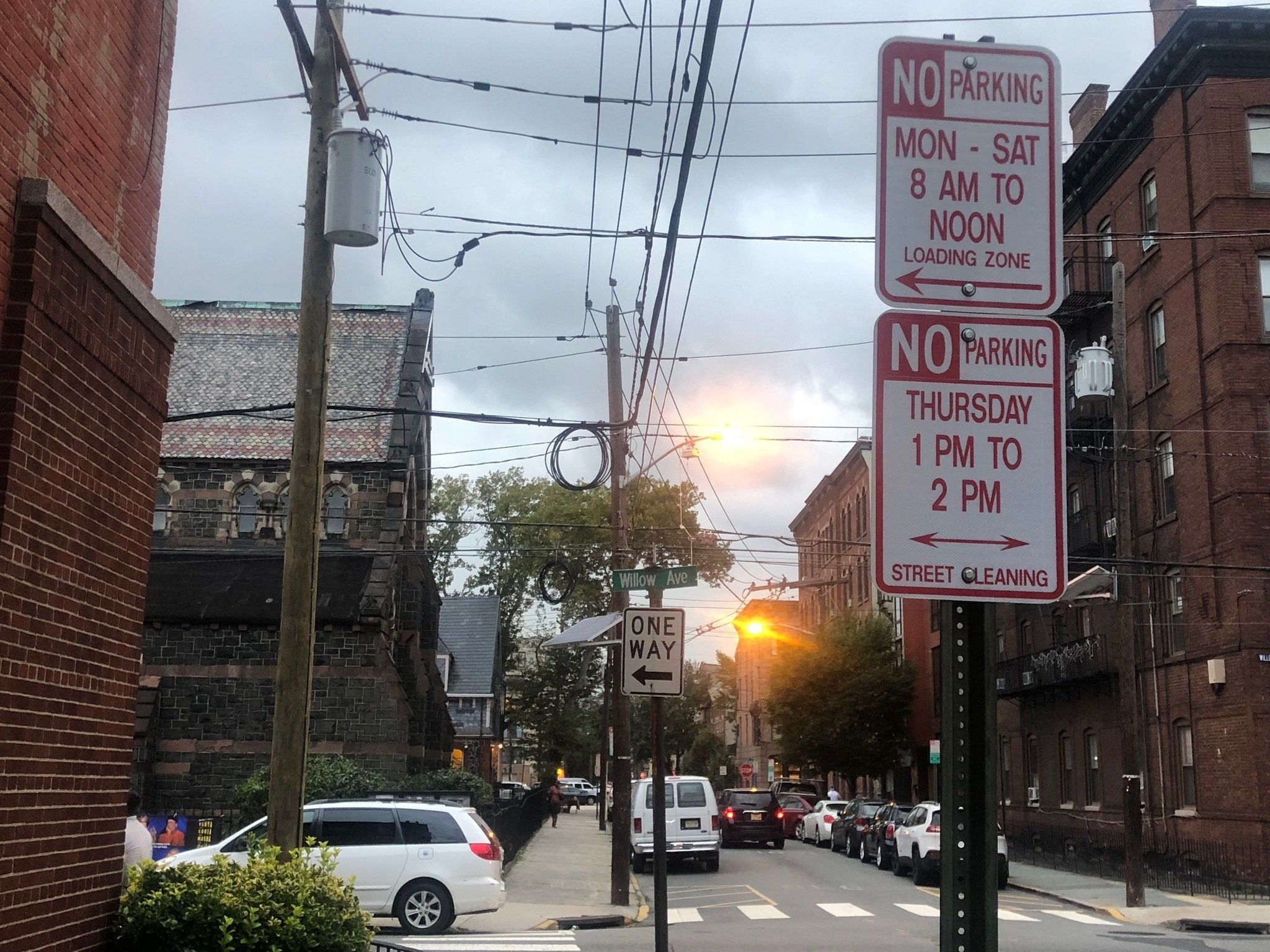
N.J.com
Cleveland, Ohio
Have you ever heard the phrase, “Mistake by the Lake”? That is what many residents of Cleveland, Ohio like to refer to this city as. 35% of the population lives within poverty.
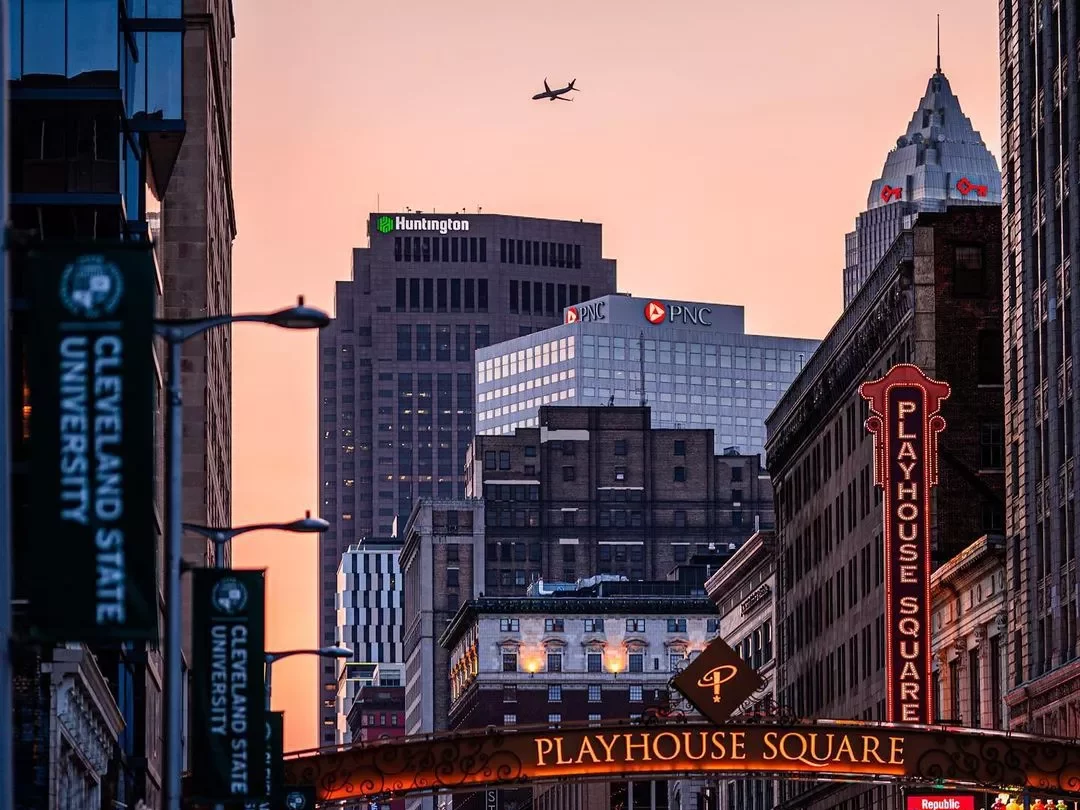
Not to mention that half the people who are living in poverty are working and still struggle to make ends meet. On top of that, it is also a bad place for gun violence.
Hammond, Indiana
Hammond, Indiana is another city that has been impacted by a population decline due to resident’s leaving. Their population decreased by 6% between 2010 and 2018.
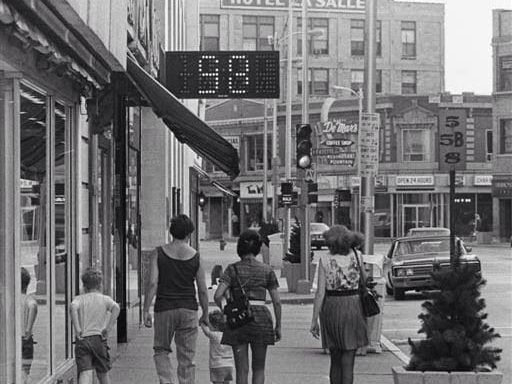
In the past, Hammond was a top leading industrial town. However, this led to the town becoming contaminated with water pollution and lead contamination.
El Monte, California
El Monte, California once had a lead on the automobile industry. This changed after there were several forced closures of auto dealerships, which led to more and more unemployment.
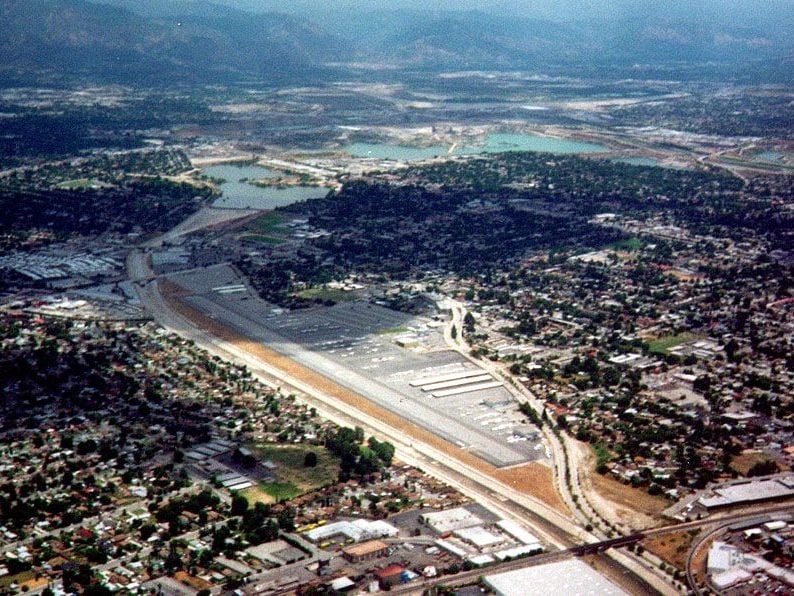
mediahex.com
El Monte, California suffers from a 22% poverty level. It also has a long commute standard at 30 minutes.
Albany, Georgia
The town of Albany, Georgia suffers at more than double the national average rate for unemployment. This places Albany in the top 10% of worst poverty rates in the country.
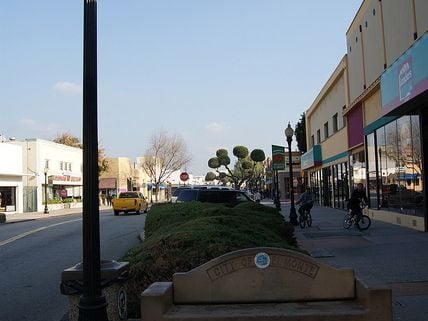
As though it couldn’t get any worse, the violent crime rates are also incredibly high. This does not seem like the best place to settle down, if given the option.
Trenton, New Jersey
Like most of the towns listed, Trenton, New Jersey suffers from much of the same problems like the ones above it. With a high rate of crime and poverty, it is no wonder it made the list.

Today, the town has a lot of issues with things such as gang violence, gun violence, and a poverty rate of a whopping 27%.
Bell Gardens, California
Like many towns in California (transplants take note!) there are way too many people in the state and overpopulation is a major issue. Well, Bell Gardens is no exception. The city depends on one casino for the majority of its tax revenue.
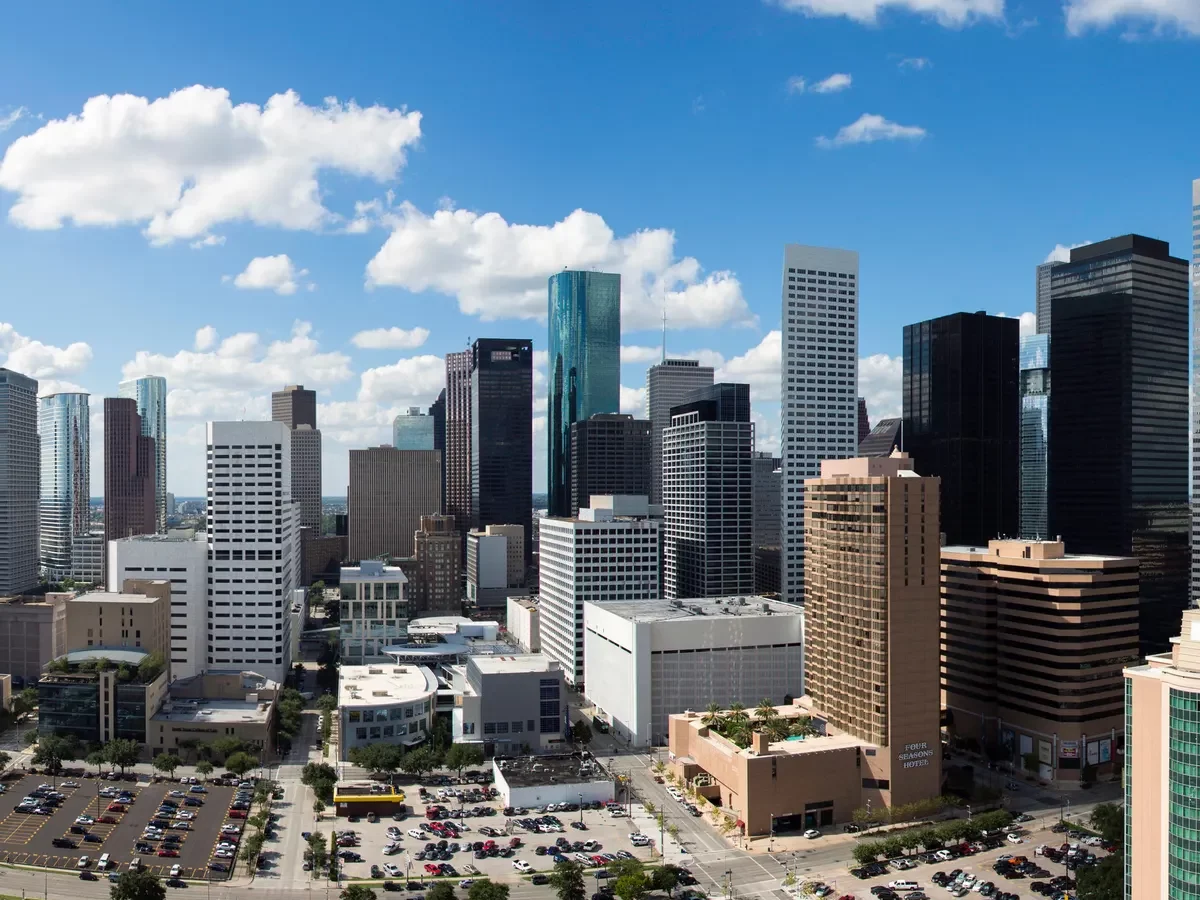
In 2022, the casino provided more than half of the tax revenue. Furthermore, about 30% of the city’s population lives in poverty.
Palmdale, California
While it seems like California is getting a bit of a bad rap, we have all the evidence to back it up on why Palmdale is not the best place in the country to live. 59% of the town’s population is working, while 19% live in poverty (yikes!).
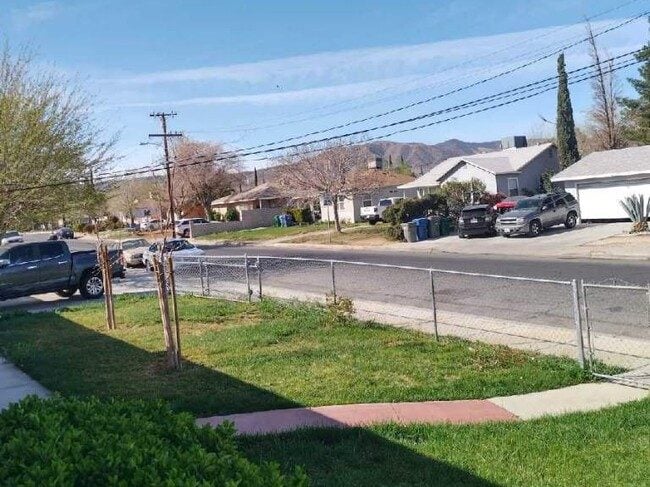
It also has the longest commute times of anywhere in the United States, at a large 42.7 minute average. It has been referred to as the “Foreclosure Capital of California.”
Saginaw, Michigan
Saginaw, Michigan, or as some who live there like to call it–”Sag-Nasty.” Saginaw suffers from a large amount of crime, although there has been a downward trend in the commonality of it.
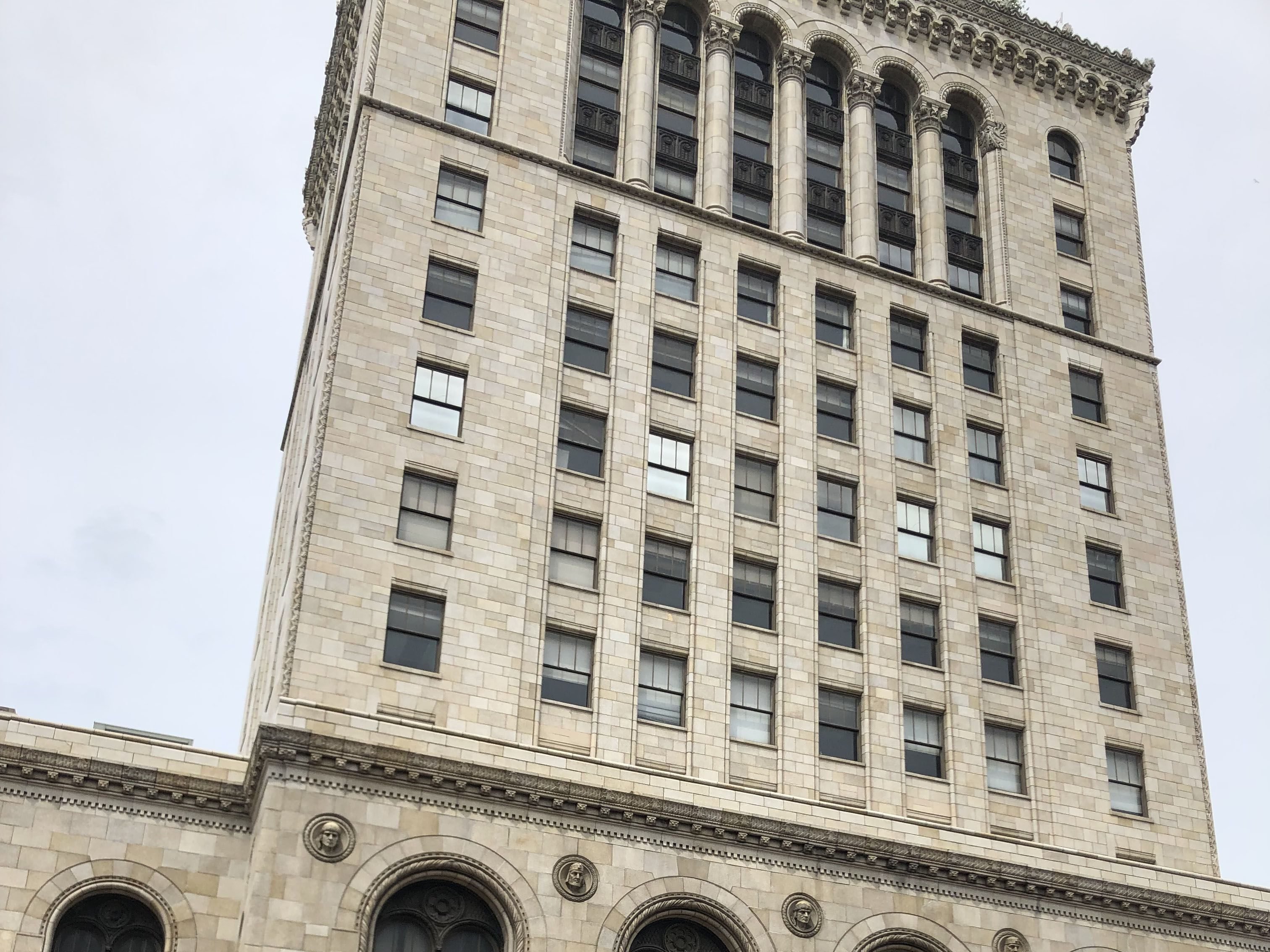
wnem.com
Like most places with high crime, Sag-Nasty suffers from some sad poverty, with 55% of people working and nearly 34% in poverty.
Bessemer, Alabama
Like most of these so-called “miserable cities,” Warren, Ohio has also lost a large chunk of its population, at 7.7%. One of its major plants shut down and the town’s population found itself struggling to keep itself fed.
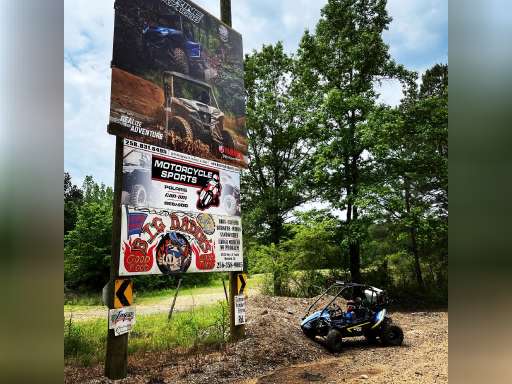
Source: ATV Trader
Jobs left and people went with them. Warren rates second in the country for least access to food. Very sad!
Warrens, Ohio
Like most of these so-called “miserable cities,” Warren, Ohio has also lost a large chunk of its population, at 7.7%. One of its major plants shut down and the town’s population found itself struggling to keep itself fed.

Jobs left and people went with them. Warren rates second in the country for least access to food. Very sad!
Anchorage, Alaska
The city of Anchorage in Alaska is a place you want to think twice about before settling down in. As of this year the crime rate ranks at about 142% higher than the national average. That is not comeforting at all.
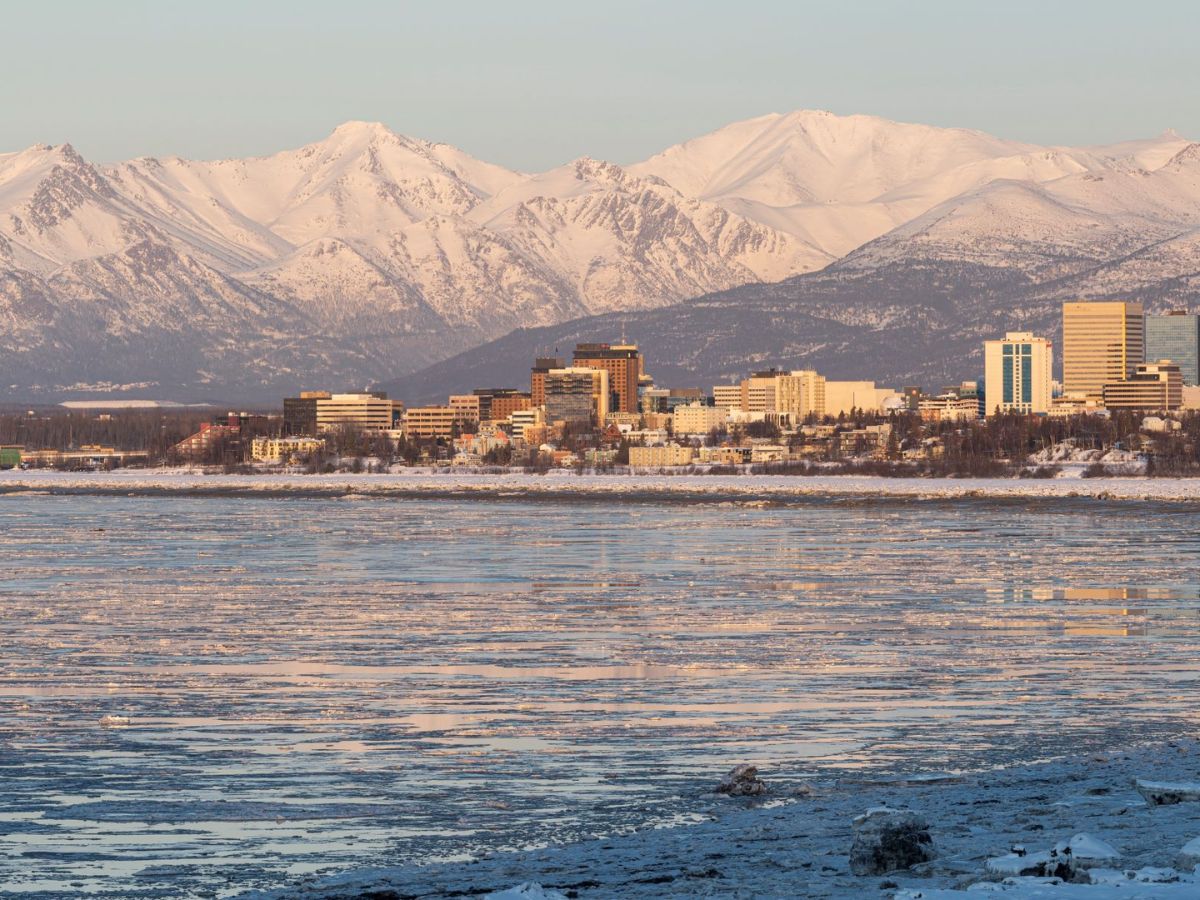
Source: Travel Alaska, Matt Hage
The median of household income is only about $82,300 with just 8.1% of the population living below poverty level. What makes it miserable you ask? The city has the highest average weekly work hours in the country. These people just can catch a break.
Honolulu, Hawaii
Hawaii, once again makes an appearance on this list but for a different city. How could anyone be miserable in Hawaii, indeed this is the reality in Honolulu. The cost of living in this city is higher than the national average making it a struggle to make ends meet.
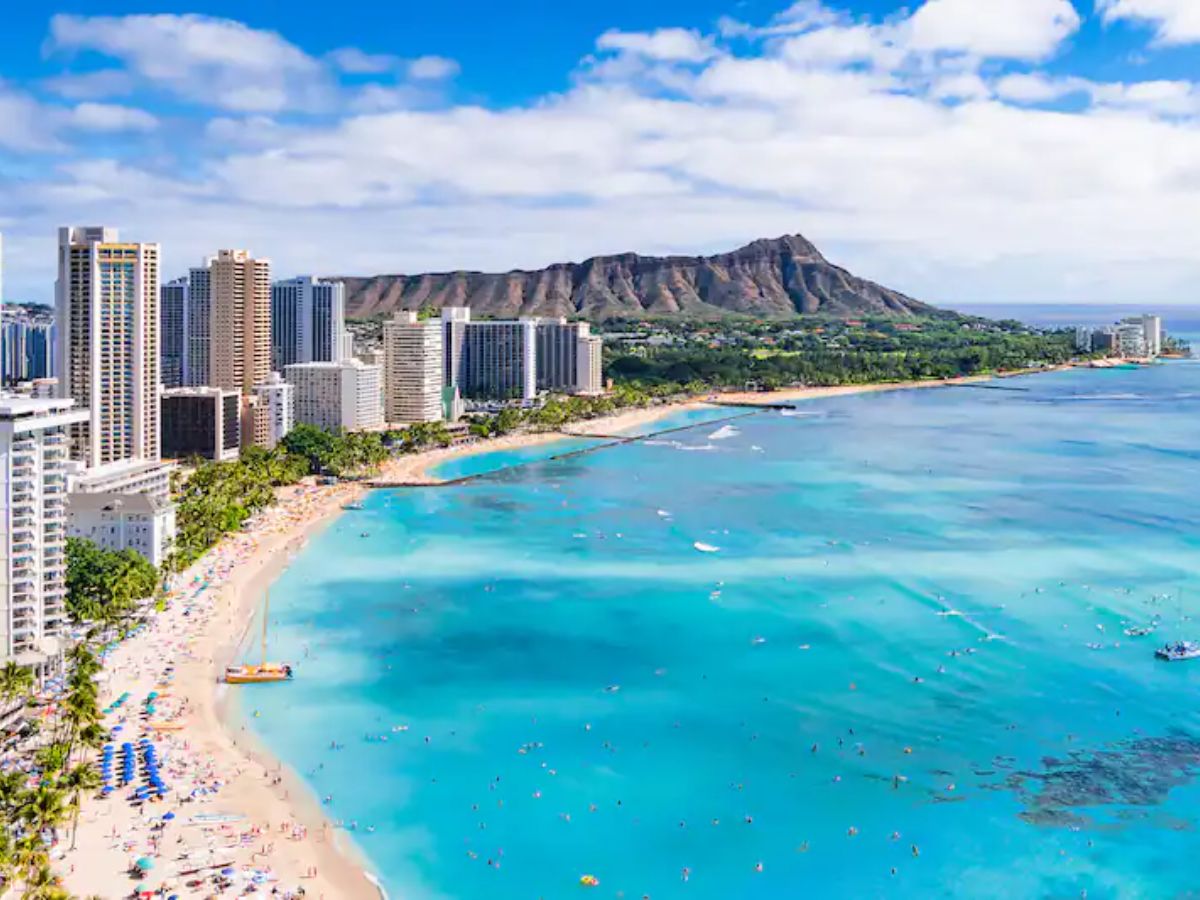
Source: Hotels.com
Housing costs are about 171% higher than the average with crime rates being 25% higher. This means that 1 person in every 32 people can become a victim of a crime. We don’t like those odds.
Casper, Wyoming
Casper, Wyoming seems to be not as friendly as its ghost counterpart. The city of Casper has one of the lowest income growth rates in the county not to mention a 16% higher crime rate than the national average.
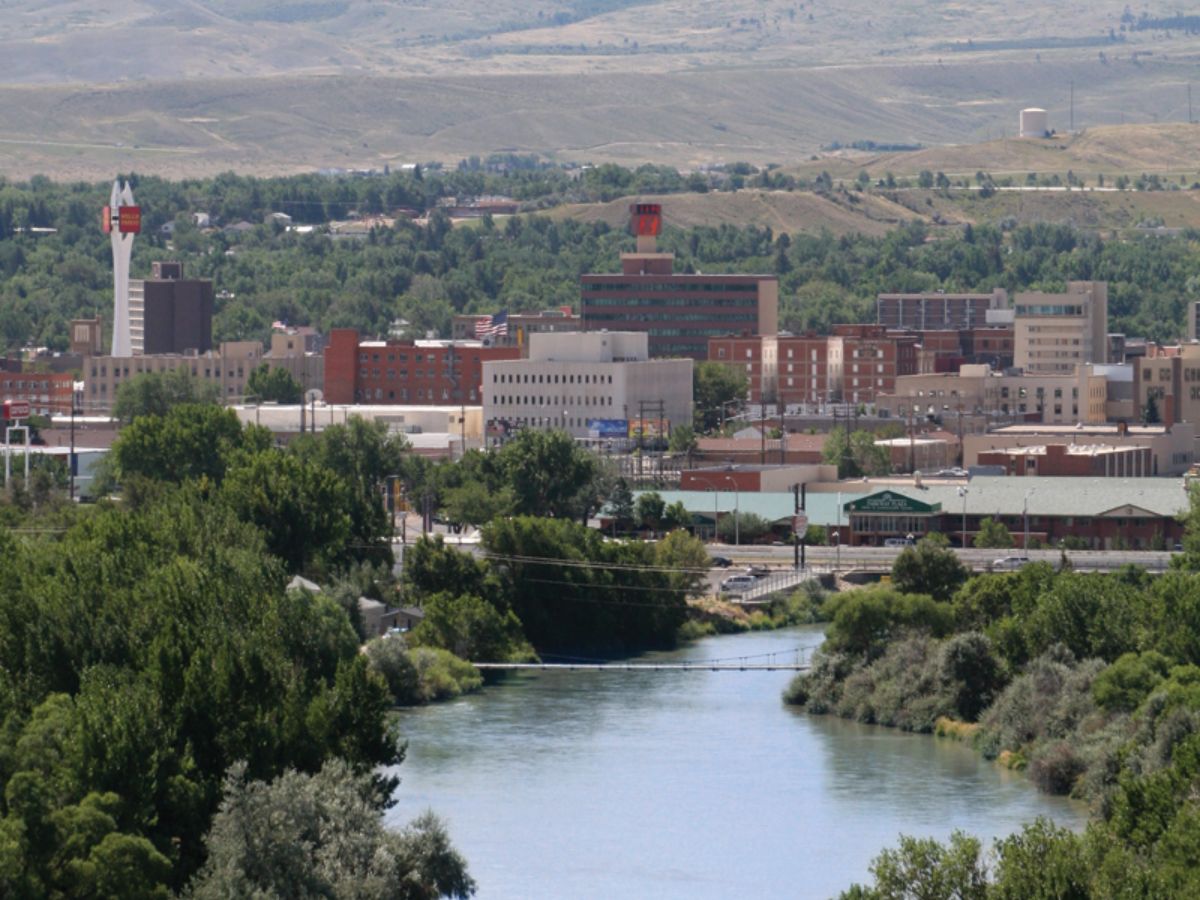
Source: Public Domain / WikiMedia Commons
If that wasn’t enough of a sell then it is important to note that they have the highest rates of suicide in the whole country. If you’re looking to relocate to Wyoming, Cheyenne is the better choice, it’s considered the happiest of all the cities in Wyoming.
Rapid City, South Dakota
We kindly suggest you rapidly get out of Rapid City, South Dakota. When looking at the national household income it stands at about $61,000. In comparison, the median household income in Rapid City is only $48,900. That is considerably low in contrast.
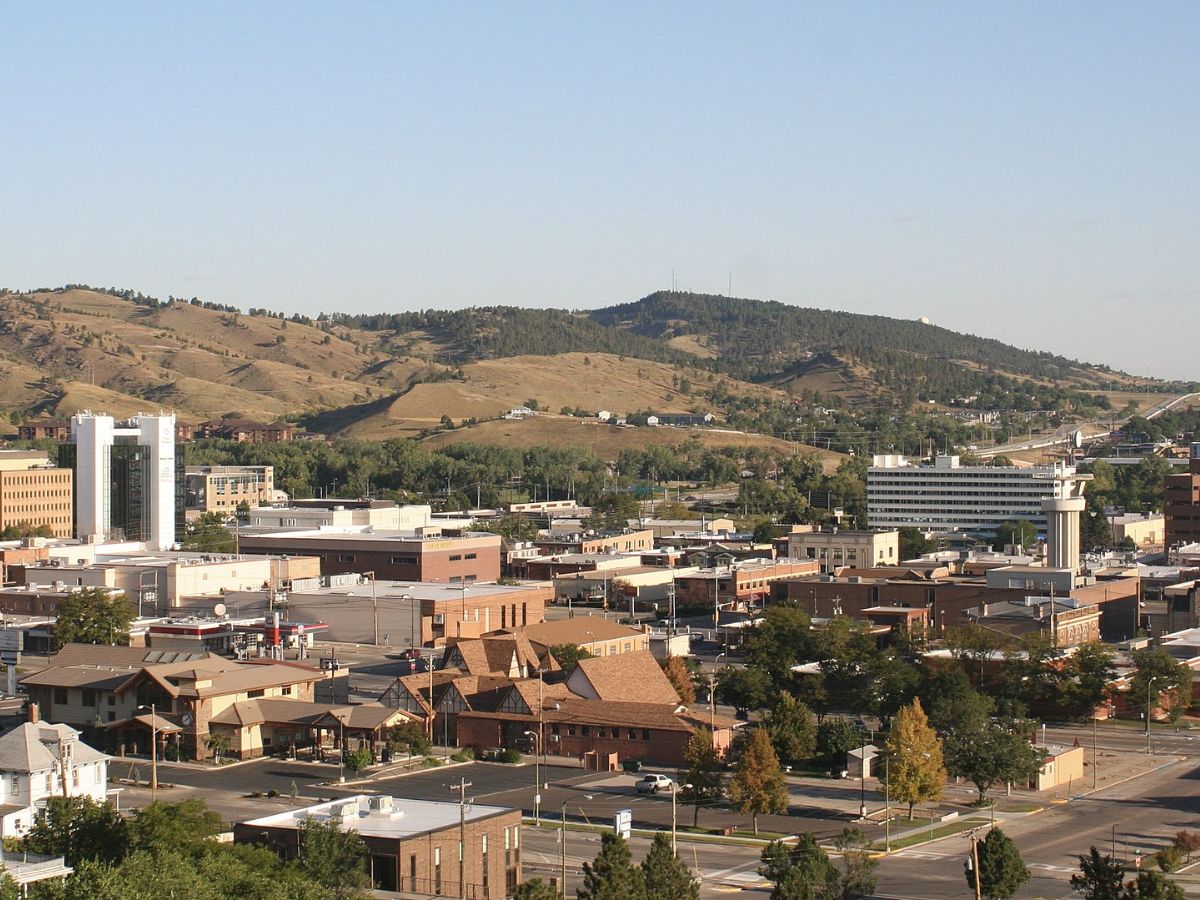
Source: WikiMedia Commons / CC BY-SA 4.0
Sioux Falls sounds like the much better choice since it’s the happiest city in South Dakota. The crime rates are better in Sioux Falls as well.
Portland, Maine
18.3% of the Portland population in Maine is below the poverty level. We’d rethink relocating if we were you. This means that 1 in every 5 people just isn’t cutting it.
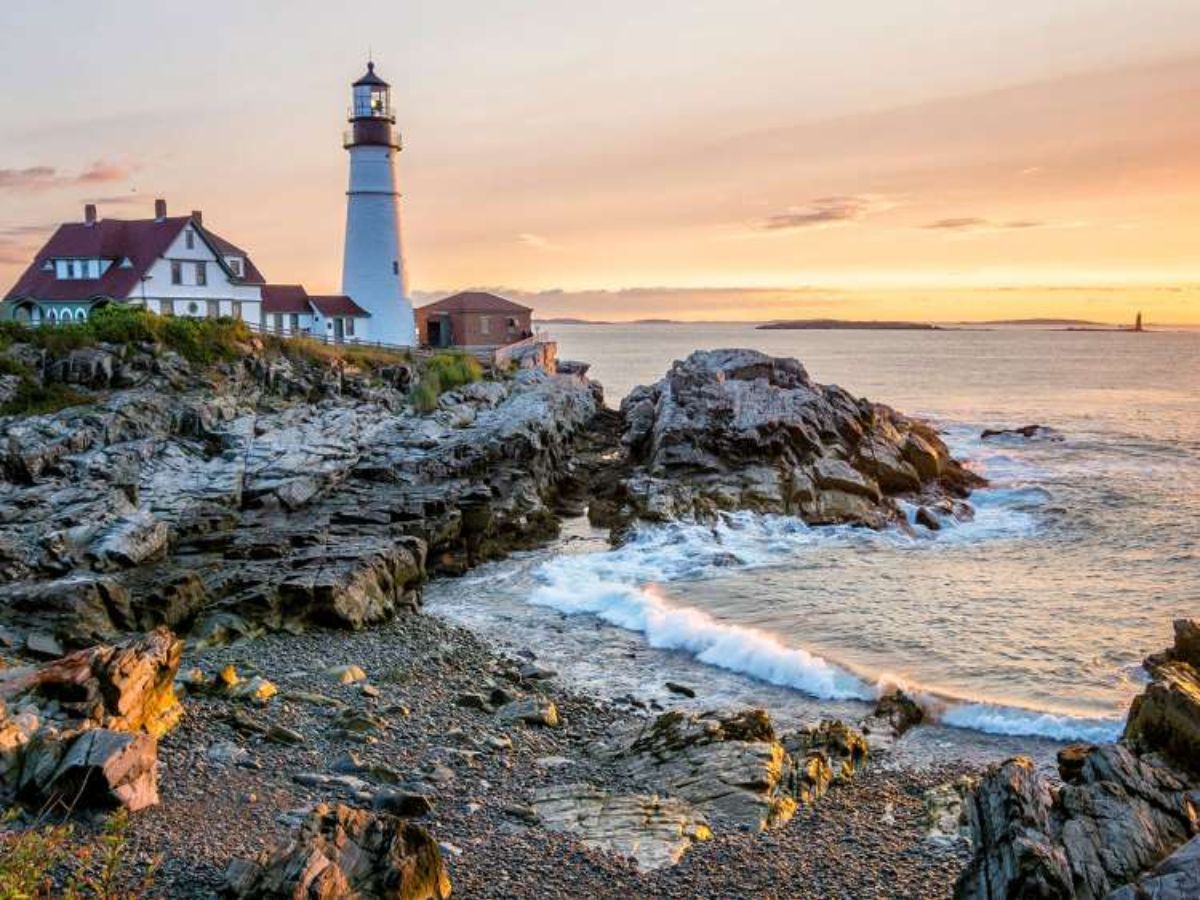
Source: www.cunard.com
The cost of goods being too high doesn’t help either. Goods are about 15% more expensive in comparison to the national average.
Manchester, New Hampshire
Manchester, New Hampshire is another city you may want to reconsider. Not only do its residents live below the poverty level, 18.3%, to be exact, but the school test scores rank 33% below what is the national average.
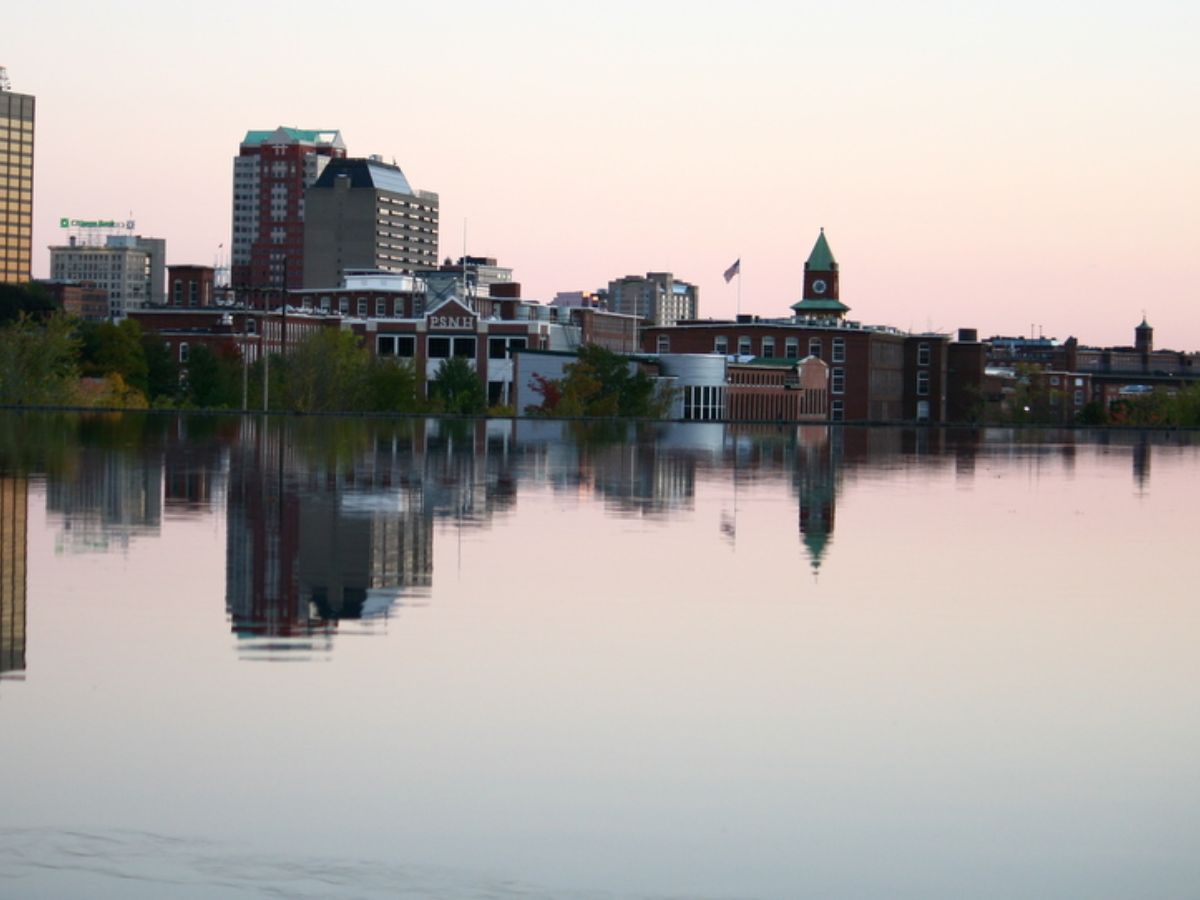
Source: Graham Nadig / WikiMedia Commons
If you’re looking for a good education for your kids, this may not be the best choice for that fact alone, not to mention the crime rate over the last year is 23% higher than before.
Kansas City, Kansas
One of the positives about Kansas City is that it has the lowest percentage of teen drug users per capita in the nation, but it doesn’t come without other issues. The median income per household is 22% below the national average and it has an especially violent crime rate.
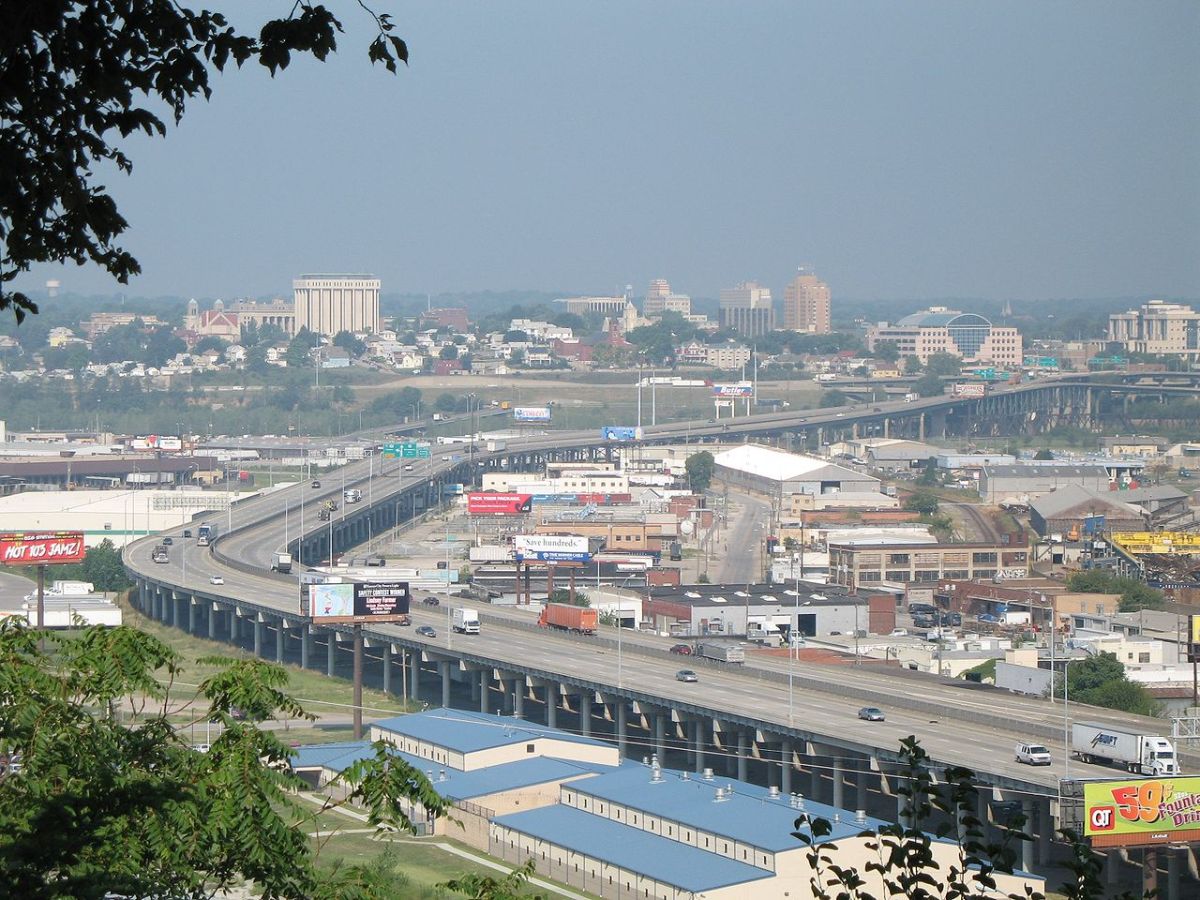
Source: WikiMedia Commons / CC BY-SA 2.5
Overland Park is considered the happier choice if you’re set on Kansas. Don’t say we didn’t warn you.
Carbondale-Marion, Illinois
Another Illinois city makes it onto this list, Carbondale-Marion. As far as cities go, it isn’t the most horrible place to live but it isn’t the best either. It has become increasingly unpredictable and unsafe with the increase in gun violence.

Source: Explorecdale / CC BY-SA 3.0 / WikiMedia Commons
Many would say that living here is a mixed bag, you never really know what you are going to get. If you’re looking for more stability this may not be the right fit for you.
